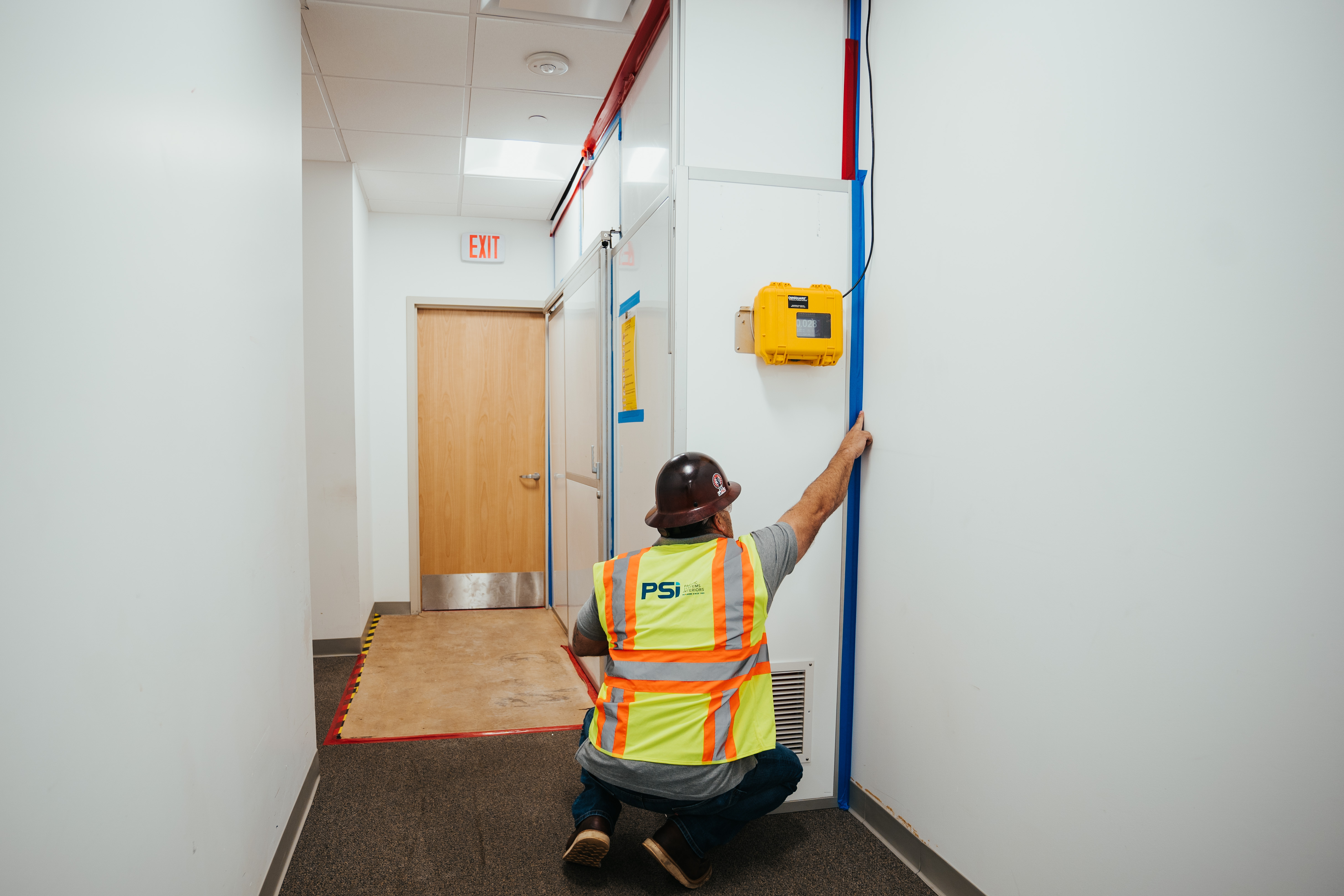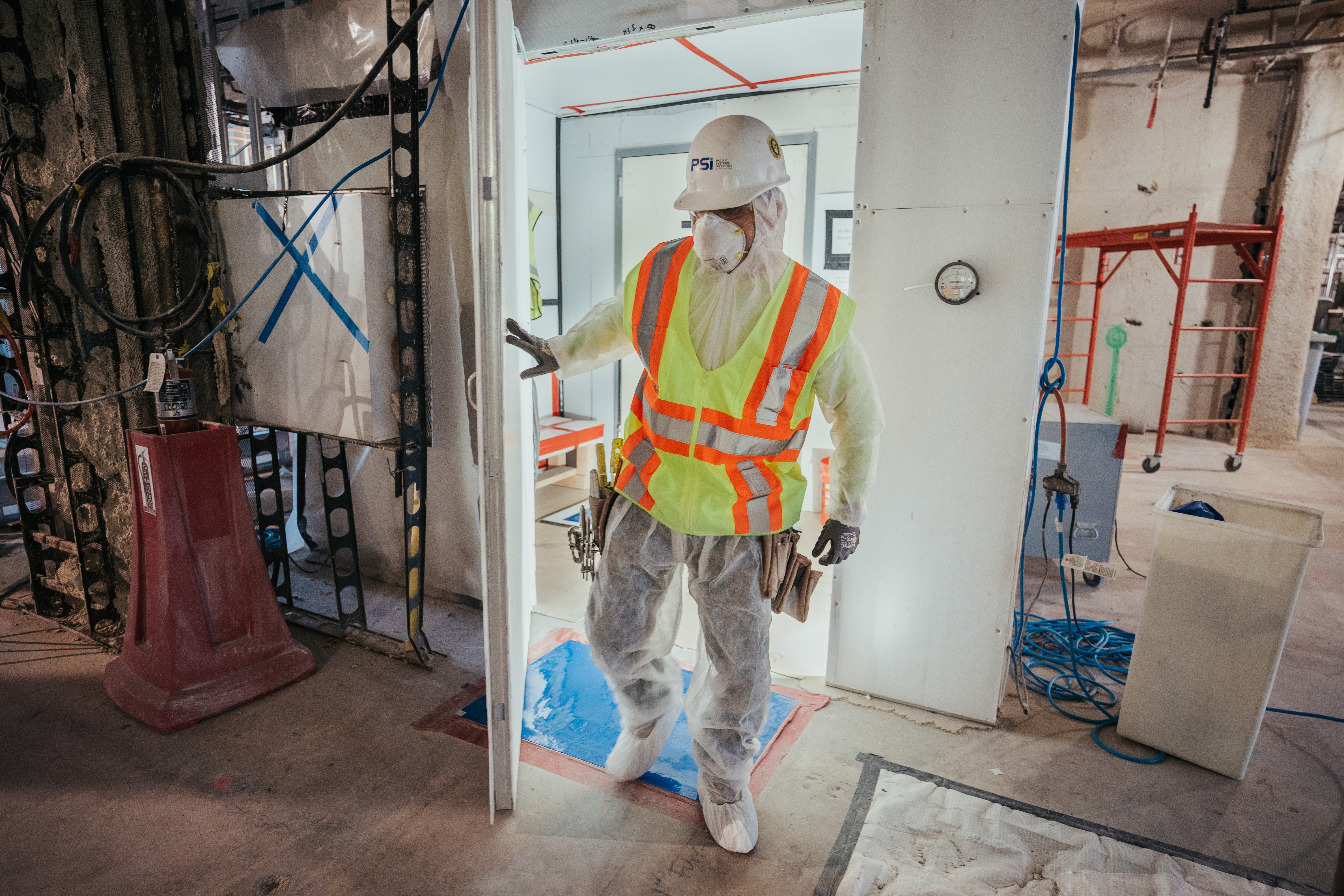Approximately 99,000 people die in hospitals every year due to secondary infections contracted during their stays. One of the major causes of secondary infections is cross contamination, which can occur during hospital remodels. The removal of ceilings, walls, flooring, etc. releases agents that may be trapped behind ceilings and walls, and under floors. If not handled properly, these infectious agents are transferred through HVAC systems, drafts, feet tracking, etc. to other areas of the hospital occupied by patients with compromised immune systems who are more likely to be susceptible to secondary infections. As a result, hospitals are now looking for contractors and workers who have been trained to handle these situations during construction. The CITF has addressed these issues in a new class: Infection Control Risk Assessment (ICRA) Best Practices in Health Care Construction.
ICRA teaches UBC members how to contain pathogens, control airflow, protect patients, and work without disrupting adjacent operations. Members learn to classify work areas to minimize risks; understand and adhere to ICRA protocols; and communicate with a facility’s ICRA team. The curriculum was developed by consulting with leading construction-related infection control experts and is reviewed regularly to keep materials relevant to industry needs.
For more information, visit the website: https://ubc-icra.org

